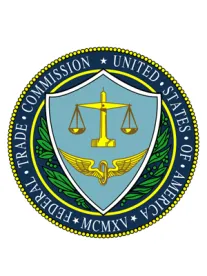The Federal Trade Commission recently announced staff recommendations for Congressional reauthorization of the U.S. SAFE WEB Act. The SAFE WEB Act provides the FTC with a number of tools to improve enforcement regarding consumer protection matters, particularly those with an international dimension, including increased cooperation with foreign law enforcement authorities through confidential information sharing and provision of investigative assistance. The SAFE WEB Act also allows enhanced staff exchanges and other international cooperative efforts.
In remarks delivered at the 46th Annual Fordham Conference on International Antitrust Law and Policy, Chairman Simons focused on key takeaways from the FTC’s March hearing. The hearing, entitled, “The FTC’s Role in a Changing World,” was devoted to the international aspects of the FTC’s competition and consumer protection work.
Chairman Simons expressed that there was strong support throughout the hearing for reauthorizing the U.S. SAFE WEB Act and for making it a permanent part of the FTC Act. The SAFE WEB Act “confirms the agency’s legal authority to sue foreign wrongdoers and challenge misleading practices with a nexus to the United States or American consumers.” The SAFE WEB Act has been used hundreds of times in various cases, from Internet pyramid schemes and sweepstakes telemarketing schemes to complex advertising and privacy investigations. The Act is currently subject to a “sunset” provision that will terminate it on September 30, 2020.
According to Chairman Simons, there was also strong support for pursuing mechanisms for enhanced information sharing and investigative assistance in antitrust investigations. “In today’s interconnected world, the agencies need to obtain and share information quickly and efficiently in order to conduct effective cross-border investigations,” FTC attorney Simons stated. “Participants stressed the need to improve opportunities for obtaining information, including confidential information, and investigative assistance from the FTC’s counterpart competition agencies.”
Chairman Simons also stated that FTC staff recommends that the agency should continue to exercise its international leadership, leveraging its competition and consumer protection expertise to address emerging issues.
Other takeaways from the international hearings include a framework for evaluating technology platforms as well as guidance on vertical merger enforcement. Chairman Simons explained, the latter will clarify that “anticompetitive vertical mergers are not unicorns, and there should not be a presumption that all vertical mergers are benign.”
The Chairman also announced that staff is developing an addendum to the 2006 Horizontal Merger Commentary addressing the analysis of mergers involving nascent competitors and how staff accounts for non-price factors in horizontal merger analysis.
Finally, Chairman Simons noted that the FTC’s Office of Policy Planning is engaged in projects assessing current thinking on common ownership as well as a review of the consumer welfare standard and its alternatives.




 />i
/>i
